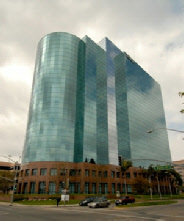
Yorba Linda Family Law Attorneys MJV Law © Copyright 1997-

Yorba Linda Family Law Attorneys
Custody & Visitation
Divorce
Nullity
Legal Separation
Domestic Violence
Property Division
Child Support
Spousal Support
714-
OC SIMPLE & COMPLEX DIVORCE ATTORNEYS


Divorce can be one of the most difficult and painful events in the life of a family
— for you the parents and especially the children. For more than a decade, MJV Law
-
Protecting your rights, your family and your future since 1997!
Filing for Divorce in California
In CA, a divorce typically is based on in supportability of the marriage — also known as "no fault" divorce — although a divorce also can be granted on specific grounds, such as abandonment, adultery or cruelty. However, a divorce will not be granted until two issues are determined:
- Conservatorship ( child custody and parental access) taking into account the "best interests" of the children.
- Division of the community property (the property acquired during the marriage, and identifying each party's separate property or property acquired prior to the marriage or during the marriage by gift, devise or descent).
Initiating the Divorce Proceeding
A divorce proceeding is initiated by either spouse's filing of an Original Petition of Divorce with the court. This may be a short or lengthy document depending upon the individual circumstances and the relief requested by the court. The case will then be assigned to a specific court that will preside over the proceeding until concluded.
For example in Yorba Linda, Orange County, a divorce case will be assigned to one of the court that handles Yorba Linda Family Law matters.
A divorce cannot be granted until at least sixty (60) days have elapsed from the filing of the divorce petition. If there are contested issues that the parties cannot agree upon, that period can become substantially longer.
Contested and Uncontested Divorces
The Uncontested Divorce
Divorces may be contested or uncontested. An uncontested divorce is one in which the spouses agree to the:
- Divorce
- Child custody arrangement
- Division of the marital property
- Division of the liabilities
In an uncontested divorce, one party files the petition to initiate the process. Then the parties wait sixty (60) days, a "Final Decree of Divorce" is drafted during this period. It is the document that sets forth all relevant agreements that the parties have entered into. The parties sign the Final Decree and then one party or both will go to court to finalize the decree. One or both parties ask the Judge to sign the Decree and grant the divorce, and leave the courthouse divorced.
The Contested Divorce
A contested divorce, however, is a different matter and is contested because one or both of the parties are unable to agree on the terms of the divorce. These types of divorces are far more complex, require more time and are usually more costly. Each party typically hires a Yorba Linda Divorce Attorney. Depending upon the nature and amount of the marital property and level of acrimony, the divorce can take substantially longer than sixty (60) days to finalize.
Temporary Orders
In a contested divorce, the parties do not agree on child custody issues and/or issues of property distribution. Many times it is necessary to go to court and have a hearing to determine 'Temporary Orders', or orders that will stay in effect during the interim of the divorce.
Securing the appropriate temporary orders is critical. Temporary orders govern all aspects of the divorce proceeding between the date the petition is filed and the date the divorce is granted, such as:
- Spousal support
- Custody and support of the children
- Living arrangements of the children
- Visitation of the children
- Payment of bills
- Possession and use of the marital assets — including the family home
- Payment of attorney's fees
- Social studies
- Psychological evaluations
- Other procedural matters
In some cases, a temporary restraining order (TRO) may be warranted to prevent harassment or prevent the sale or transfer of marital property.
The Discovery Process
After the divorce petition has been filed, the discovery process begins. This is the process where the parties learn facts about their marriage and the nature and extent of their marital property. Discovery is critical in a contested divorce because it allows the parties an opportunity to discover the extent of their marital property and learn information necessary to evaluate their case. It also is important for discovering, locating, recovering, valuing and dividing marital property. The discovery process can be a lengthy and expensive process that cannot be completed overnight. It takes time to thoroughly evaluate the situation and gather the necessary information.
Discovery may be in the form of written questions directed to the parties through their attorneys. This is referred to as Interrogatories. It also may be in the form of requests for copies of documents such as deeds, vehicle and boat titles, bank account records, stocks and bonds, business records, tax returns, credit card statements, telephone records and other relevant documents, Requests for Production of documents and other tangible items. Discovery also may be in the form of oral testimony in a deposition. A Sworn Inventory and Appraisement listing the value of the parties' marital property and debts is prepared using the information collected during the discovery process.
Concluding the Divorce Proceeding
Once the discovery process is completed, the divorce proceeding is resolved either
through an agreed divorce settlement, mediation, or by trial. The trial may be before
a jury or a judge alone. If the case is tried, the court will hear the evidence,
and a jury verdict (or judge's ruling) will be rendered that determines the child
custody issue and the property division. The standard for deciding the custody issue
is what is in the "best interests" of the children. The standard for dividing marital
property and debts is what is "just and right." The practical application of these
standards will depend on the facts and circumstances of each case. The court will
then enter the final divorce decree, which will establish custody and visitation
rights, define and divide the marital property and liabilities, and assess attorney's
fees and expenses. The final divorce decree also may provide for post-
Skilled Yorba Linda Divorce Attorney
If you are contemplating divorce or your spouse has already filed for divorce, call
Yorba Linda Divorce Attorney Michael J Varisco who is dedicated to creatively resolving
your divorce-
Phone Consultations
Please contact The Law Office of MJV Law today to discuss your family law issue.
The firm provides phone consultations at 714-

- Divorce -
Contested - Divorce -
Uncontested - High Net Worth Divorce
- High Profile Divorce
- Child Custody, Visitation and Support
- Adoptions
- Mediation
- Modifications
- Protective Orders
- Domestic Violence & Abuse
- Fathers Rights
- Representing both men and women
- Grandparents Rights
- Property Division & Assets
- Complex Divisions
- Bankruptcy
- Premarital Agreements
- Post Nuptial Agreements
- Estate Planning
- Wills & Trusts
- much more...
AREAS OF LAW:
Welcome to Yorba Linda Family Law Attorneys-
The divorce process:

MJV Law
Yorba Linda Family Law Attorneys
1 Park Plaza
Suite 600
Irvine, CA 92614
714-
714-